Parenting teens is no walk in the park. Many experts will tell you that setting and enforcing boundaries is crucial. It helps create a safe and nurturing space for them to explore the world as they grow and seek out their independence. When teenagers don’t know where the boundaries are, they’ll test them and push you to your limits.
One dad has shared how he agreed to let his 17-year-old daughter’s friends sleep over. When he went to check on the girls, he found them in his stepson’s bedroom. Breaking one of two simple rules he’d set for them. The father lost it, called the other parents and told the friends to leave. Now, his daughter is angry with him and has accused him of embarrassing her. He’s wondering whether he should have just let things slide. Bored Panda spoke to parenting expert and founder of The Peaceful Parent, Lisa Smith to get her advice.
The journey of parenting might make you want to pull your hair out at times

Image credits: stevanovicigor/Envato (not the actual photo)
This dad is has hit a wall with his teen after she blatantly ignored the boundaries he set
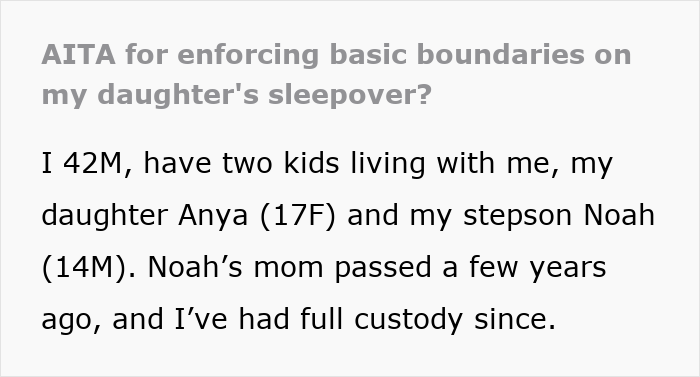

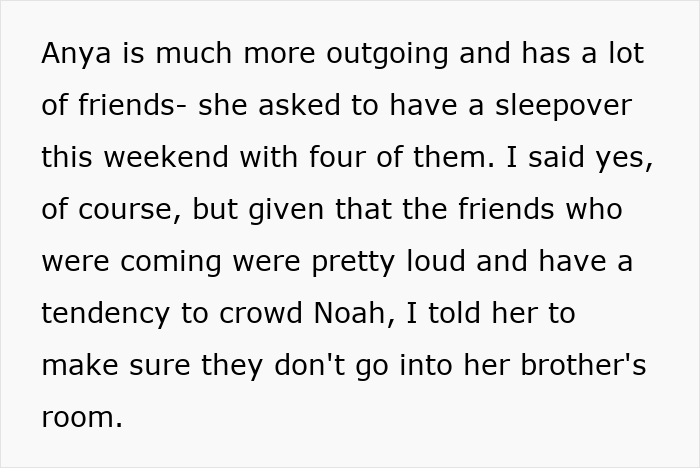

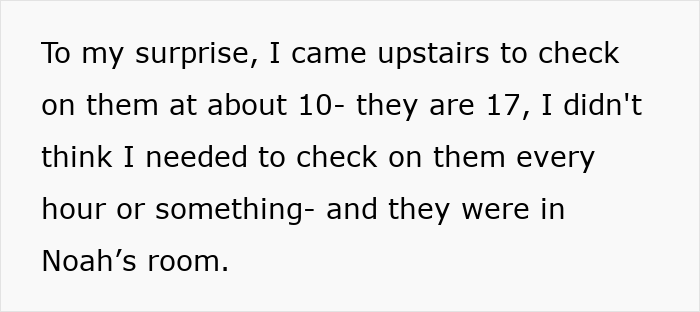

Image credits: astrakanimages/Envato (not the actual photo)

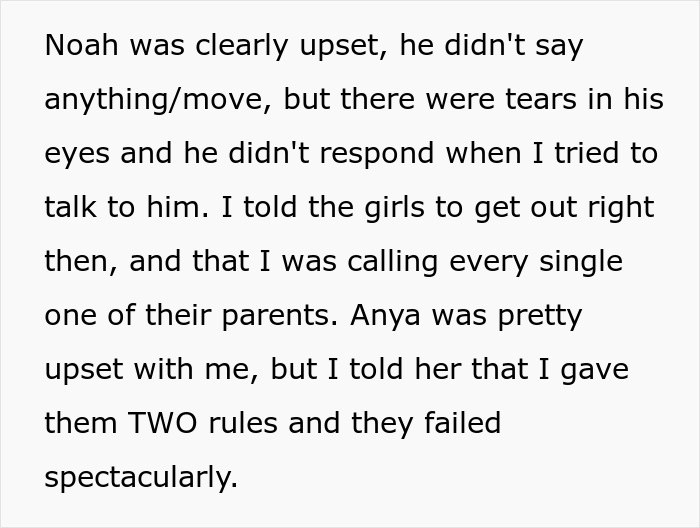
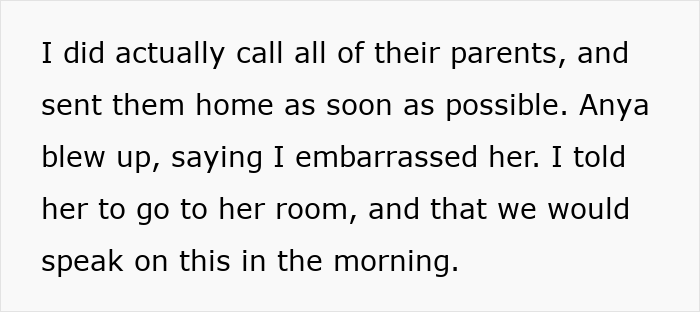
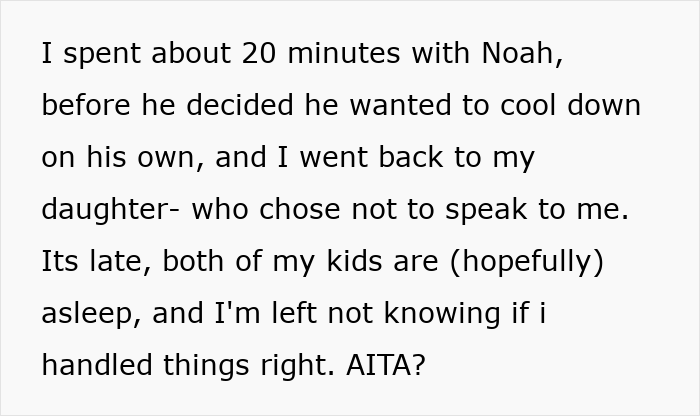
Image credits: Mountain-Dot824
“Teenagers aren’t tiny adults with reliable executive function”: an expert weighs in
Teens are neurologically wired to test limits, get swept up in the moment, and forget what seemed obvious just hours before. That’s the word from parenting coach and founder of The Peaceful Parent, Lisa Smith. Bored Panda reached out to Smith to see if she has any advice for the dad. She told us that “with no judgment,” she believes this was simply a missed opportunity for proactive leadership.
“While the father set reasonable boundaries upfront, he placed a lot of responsibility on his 17-year-old daughter to both communicate and enforce them. This is where many well-meaning parents falter,” explained Smith during our interview.
“Teen brains are still developing—particularly the prefrontal cortex, which governs judgment, impulse control, and long-term thinking,” she explained. “Add the excitement of a sleepover, peer influence, and a dash of teen mischief, and you have a recipe for forgotten rules, even well-intentioned ones.”
Smith says a more supportive approach could have included:
- Gathering all the girls upon arrival for a quick ground rules review:
“Hey, just so we’re all clear—Noah’s room is off-limits. He needs his space respected. Deal?” This small act not only sets expectations, it models how to respect emotional boundaries. - Checking in more than once.
This isn’t about hovering—it’s about acknowledging that even older teens benefit from gentle adult presence during emotionally charged or socially complex situations. - Equipping Noah with an escape plan.
A quiet conversation beforehand—“If anything feels off, just text me or say the word and I’ll come get you”—could’ve given him the power to advocate for himself without confrontation.
These aren’t just logistics, says the expert. “They’re part of creating an emotionally safe family culture, where everyone knows that if something goes wrong, there’s a plan to get help—without shame.”
Smith adds that no further punishment or discipline is necessary. “Grounding here could misplace the responsibility,” she told us. “The father created the rule but didn’t equip his daughter—or the guests—with what was needed to uphold it. She was set up to fail.”
The expert believes he should instead, focus on having a conversation with his daughter. This will help her understand why her stepbrother, Noah, was so upset—his boundaries weren’t just preferences, they were about emotional safety.
A restorative act, like a note or apology to Noah might also help to acknowledge the harm and start repair. “Planning future events together with clear roles—so Anya learns to co-own emotional safety, not enforce it alone,” adds Smith.
The coach tells us that all is not lost. The family can still live peacefully, despite their personality differences. “Respecting difference is key,” she warned. This means protecting sacred spaces (like Noah’s room) without compromise, giving Anya appropriate outlets for her social energy—with structure and building empathy by naming what each child needs to feel safe and seen.
Why are boundaries important for teens and younger children?
Smith says that boundaries help kids feel safe so that they know what to expect. They also show them that they’re loved. “Rules show someone is watching out for them,” she explained. Boundaries also provide clarity, which is good for their mental health. “They understand limits, which actually reduces anxiety,” Smith explains.
She says the best way for a parent to enforce boundaries is to keep it simple and clear. There should be no gray areas. “Explain the ‘why.’ Kids are more likely to respect boundaries when they understand the reason behind them,” adds the expert.
“Follow through calmly,” she suggests, adding that consistency builds trust. And finally, Smith says parents should model the behavior they with to see. “Show them that adults respect boundaries, too,” she told Bored Panda.
“Why are you even asking this?”: The father provided some more info in the comments section
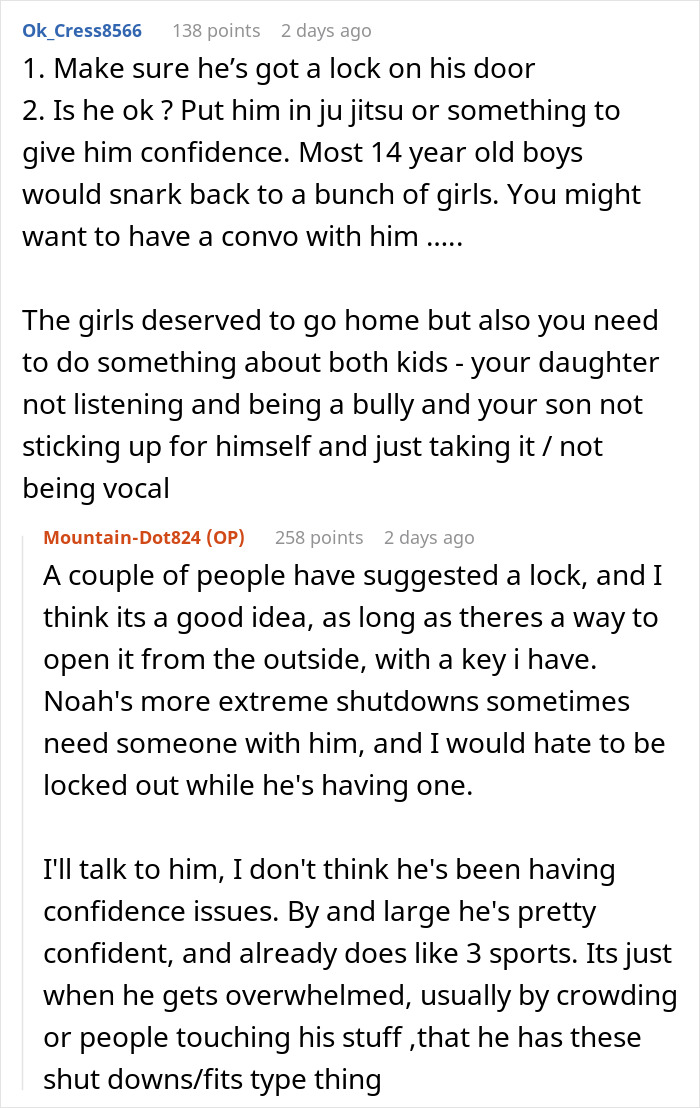
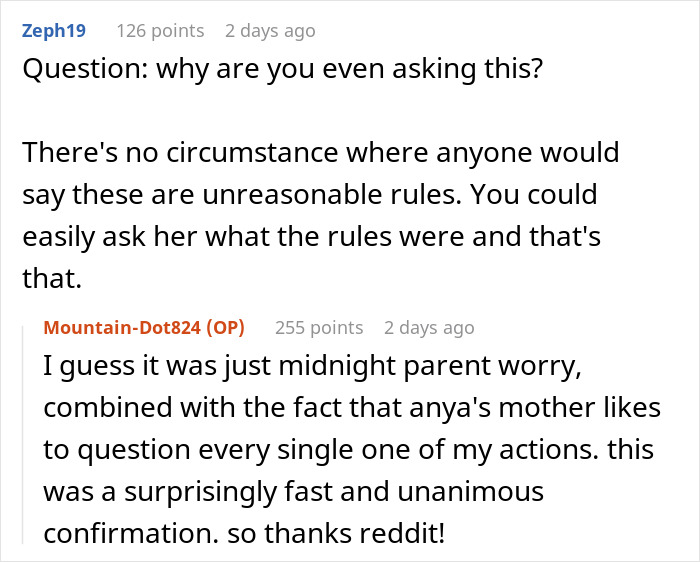
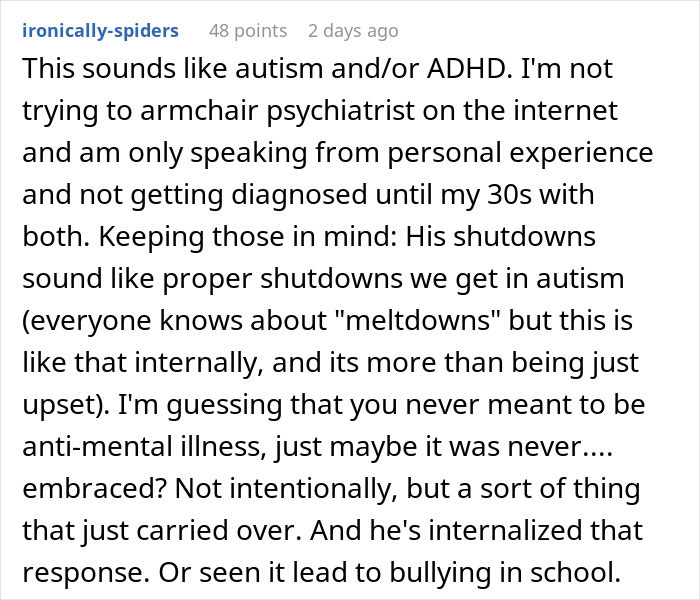
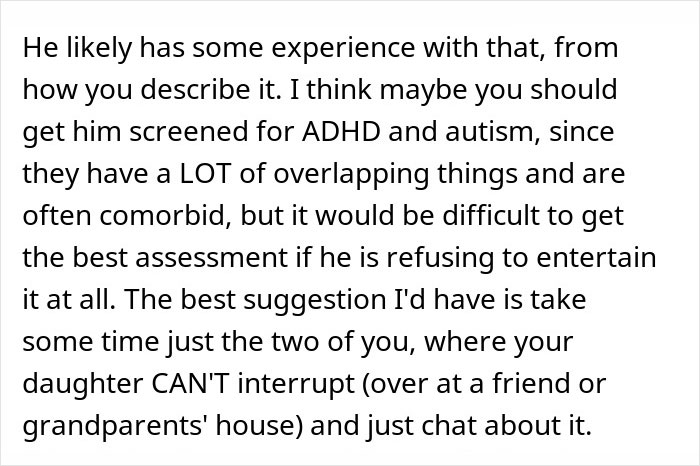
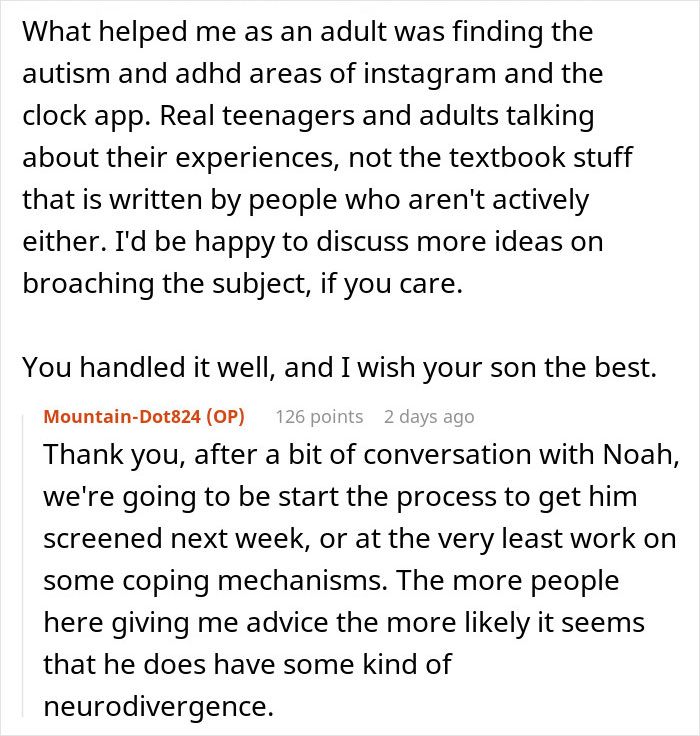
“What was she expecting after she broke the rules???”: Netizens praised the dad for how he handled it
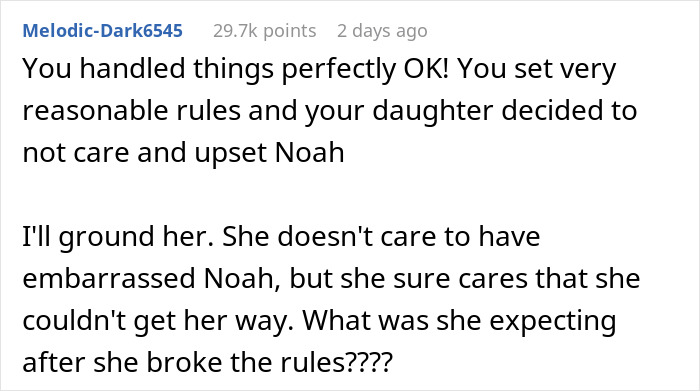

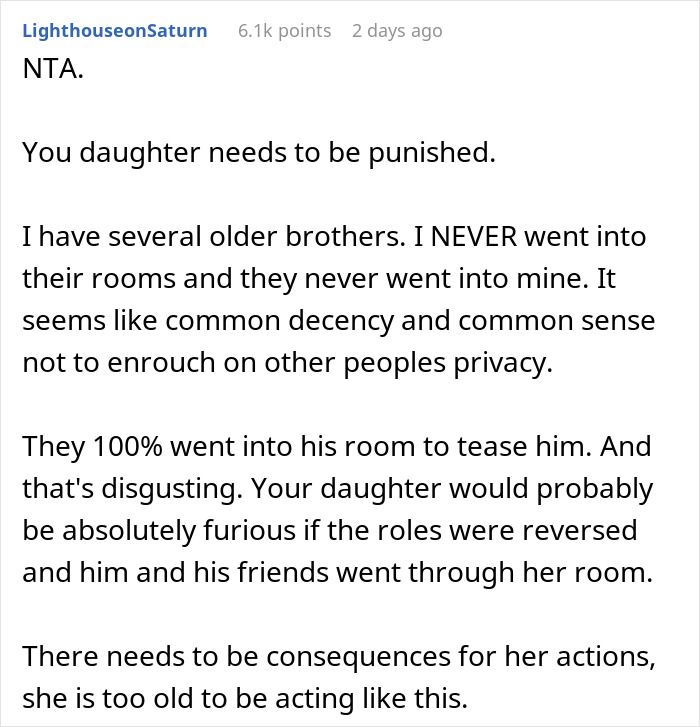
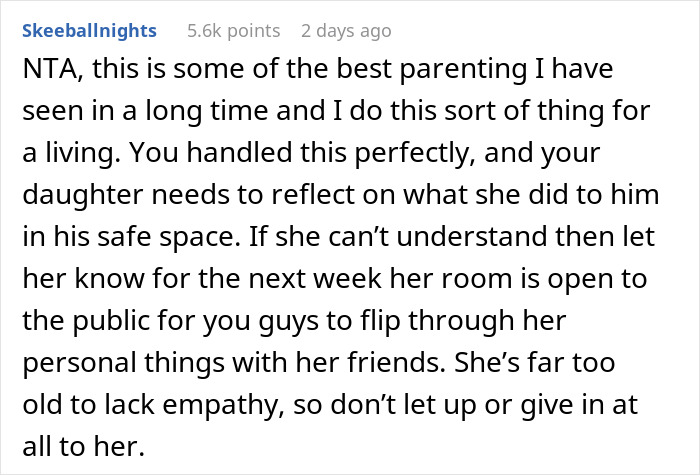
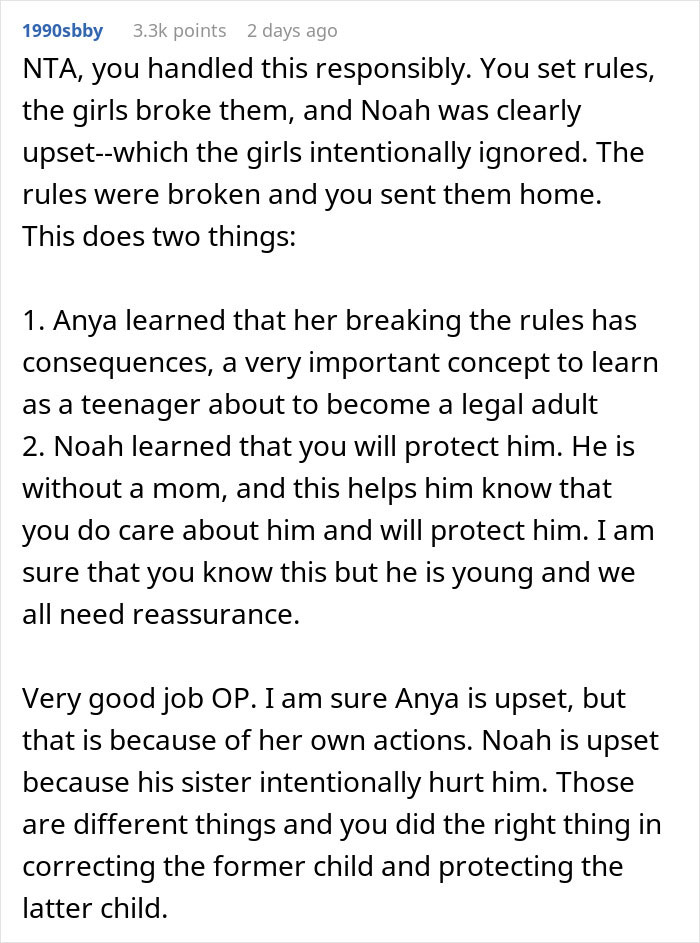

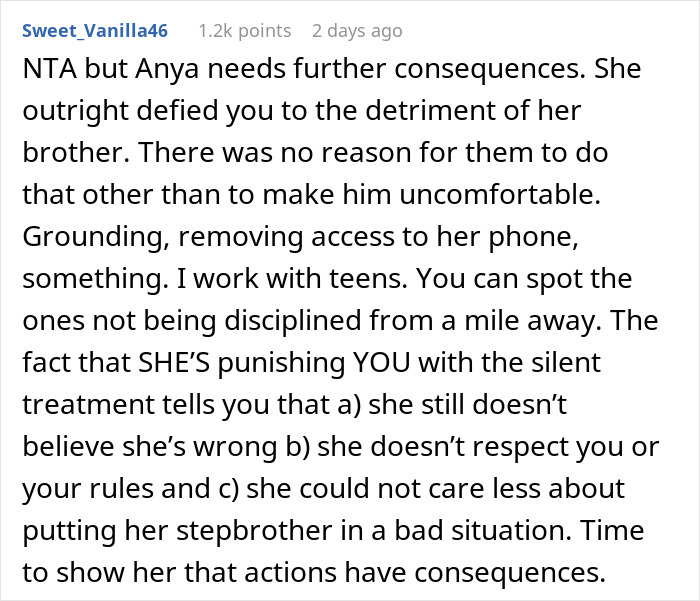




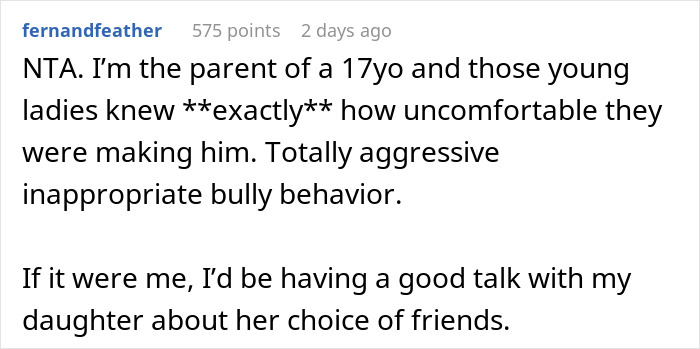
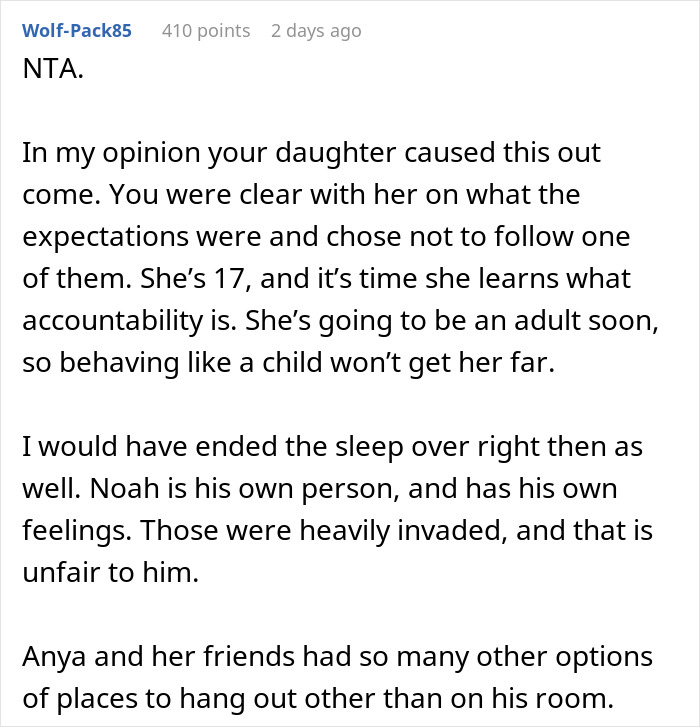
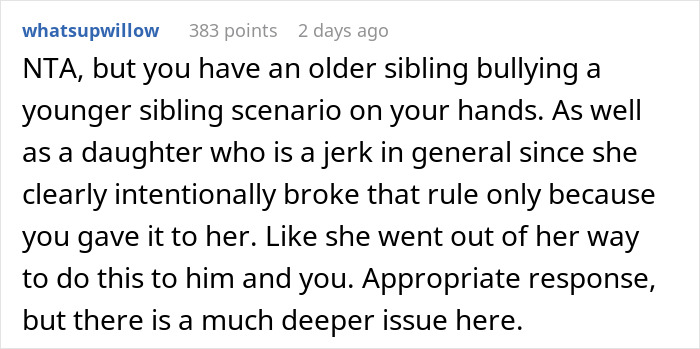
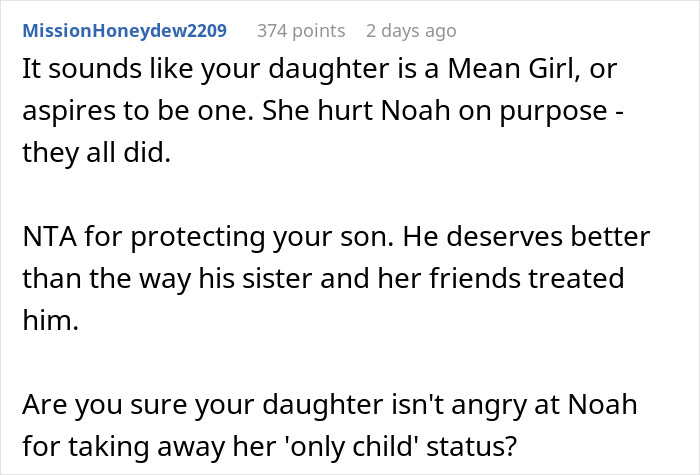
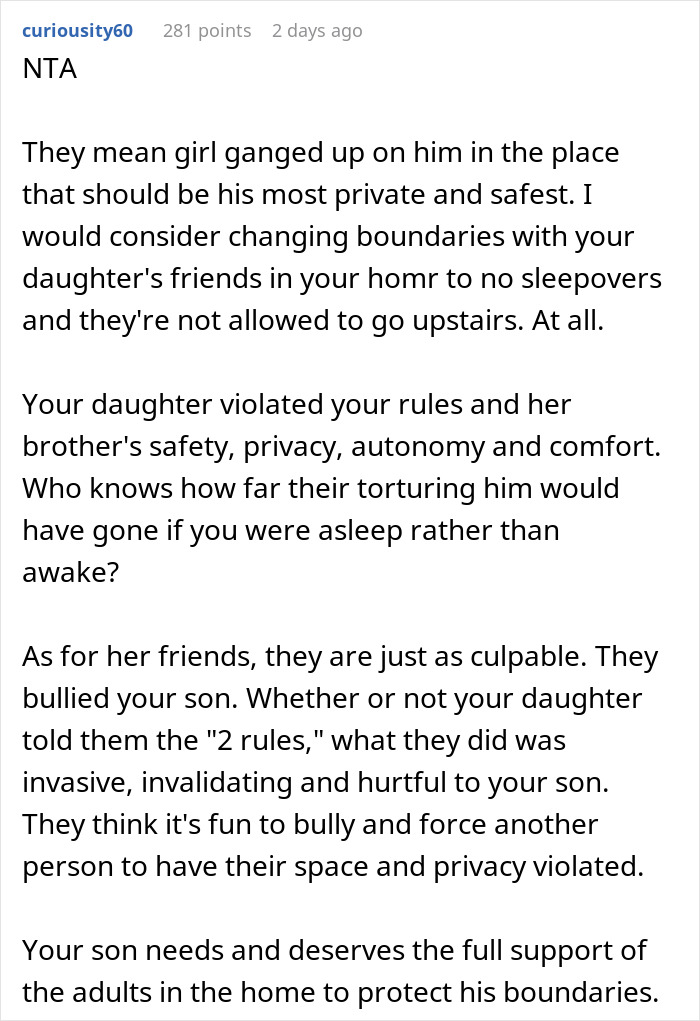

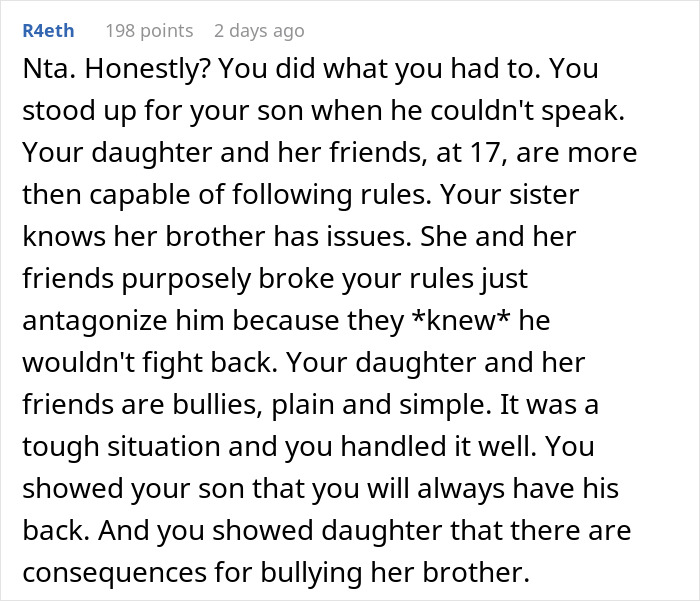
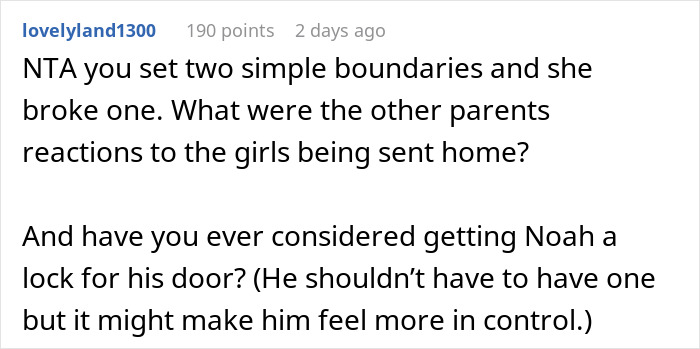

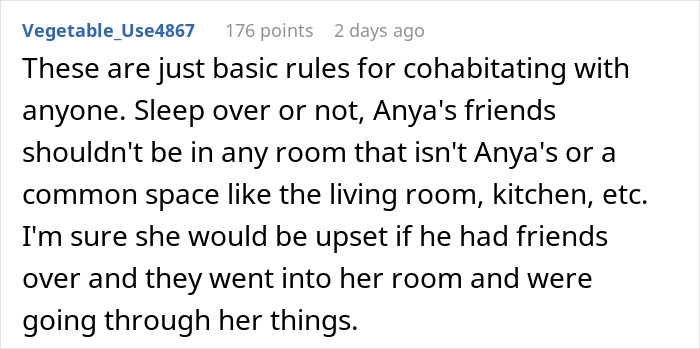


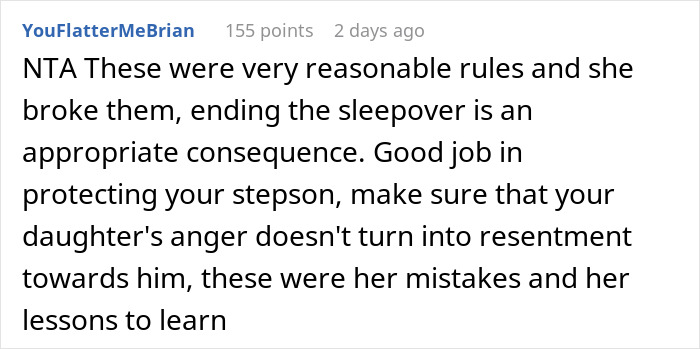
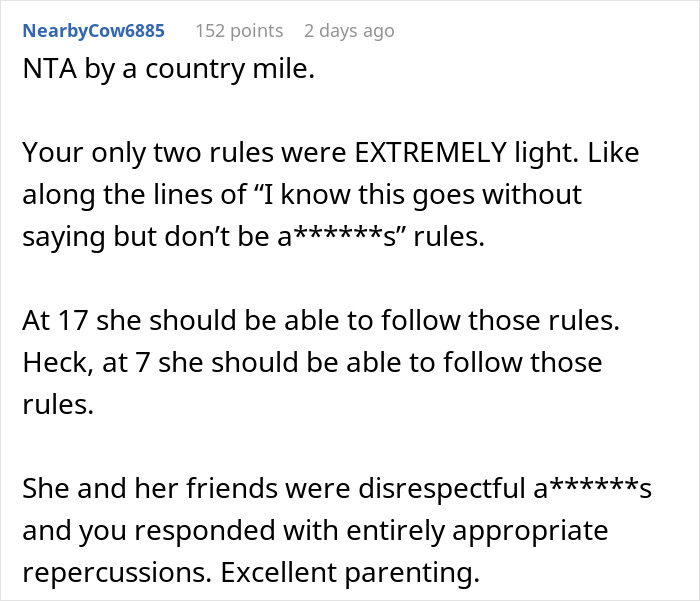
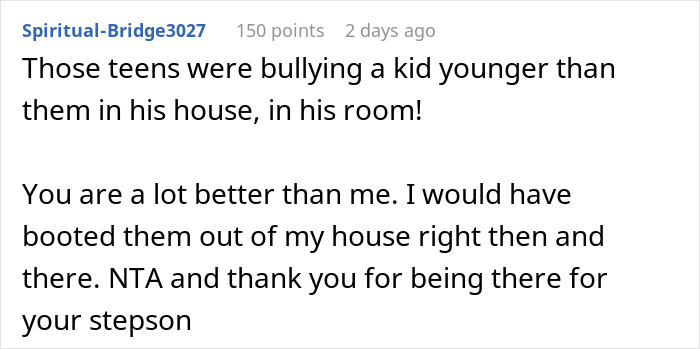


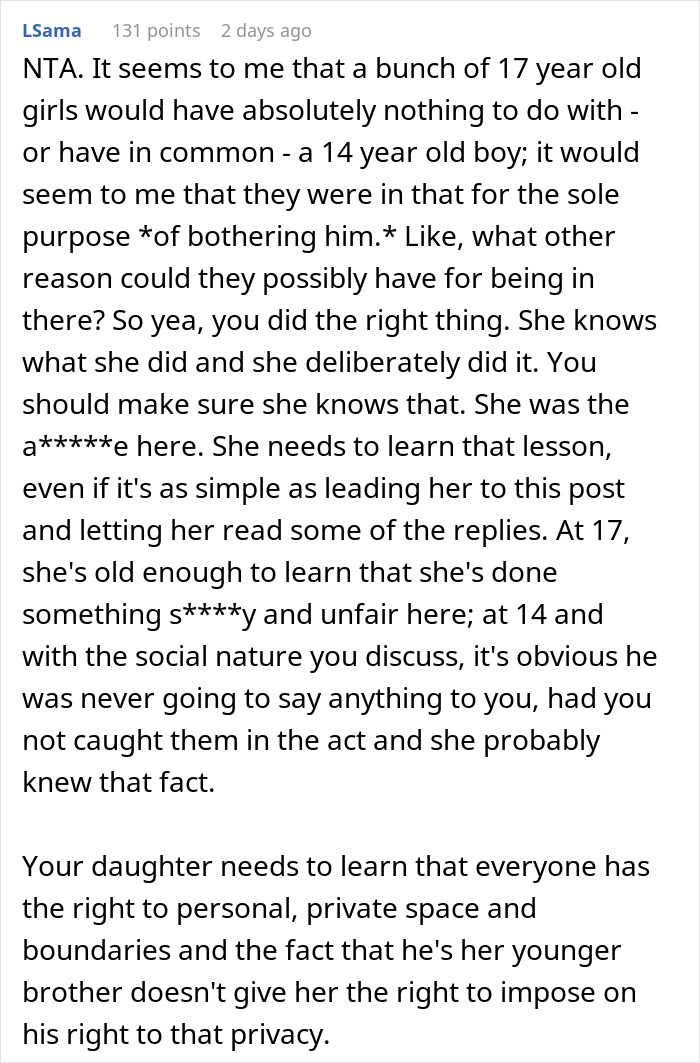
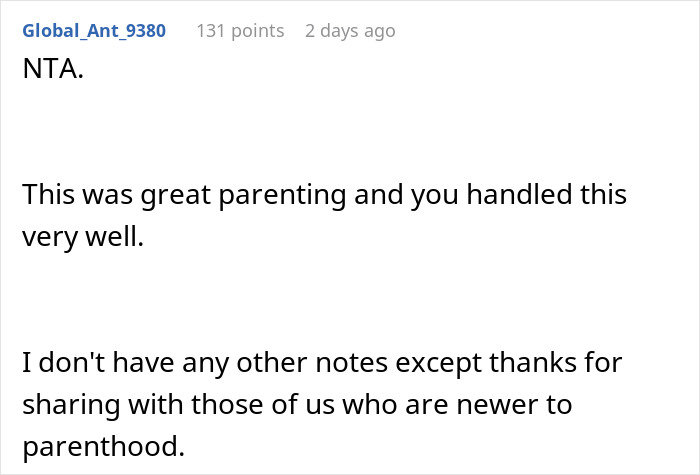

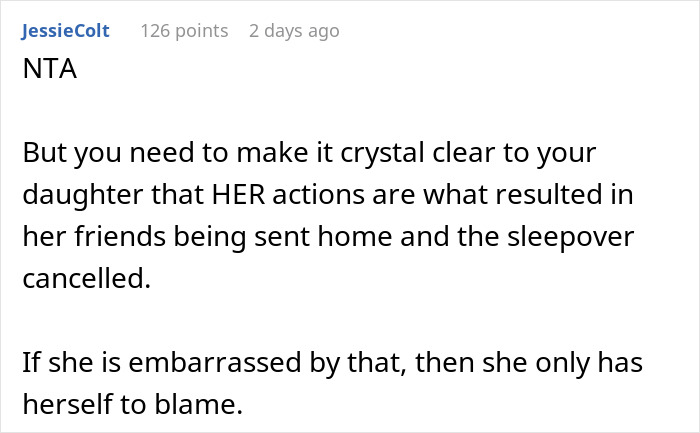
Not everyone took the dad’s side, and some felt he went too far
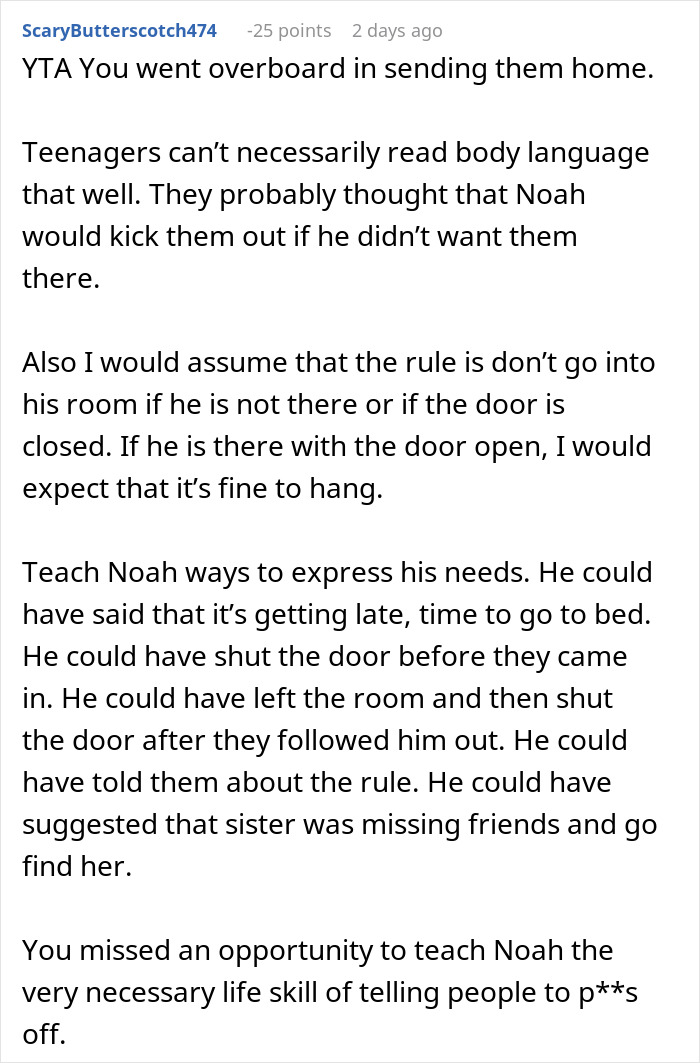

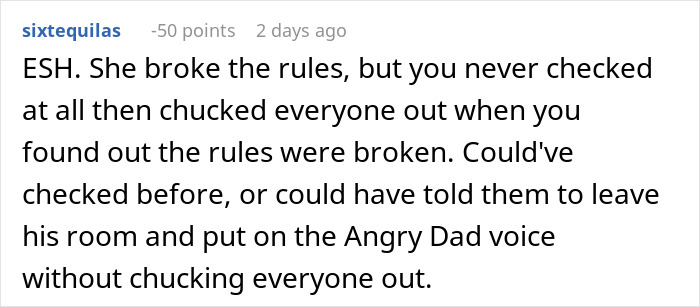
from Bored Panda https://ift.tt/O4EGjlD
via IFTTT source site : boredpanda